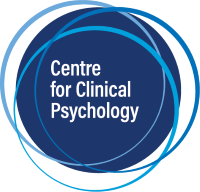CPT for PTSD Training
Book Your Next Professional Development Now
What Clinicians are saying about CPT Training
“This training was excellent – not too fast even though there was a lot of content. It is very applicable to implement in my practice and I highly recommend it to other clinicians.”
Evidence-based Trauma Therapy Training for Practitioners Throughout Australia
The Centre for Clinical Psychology’s Professional Development arm is proud to offer Australian practitioners an opportunity to diversify their skills and better support clients with our trauma therapy training workshops. Specialising in Cognitive Processing Therapy, our PTSD training is created by Clinical Psychologists with extensive experience in supporting clients living with complex trauma and PTSD.
Our PTSD workshops are available in Brisbane, Melbourne, Canberra, Sydney, Perth, Northern Territory, and Tasmania, so reserve your spot today!
About our PTSD & trauma counselling training workshops
Our two-day Post Traumatic Stress Disorder training workshop aims to train clinicians and community workers to deliver Cognitive Processing Therapy (CPT). The training is practice-oriented and includes video clips of expert demonstrations. You will also be provided with a comprehensive manual and client handouts (in both hard and soft copy) for clinical use.
What is CPT?
Cognitive Processing Therapy – or CPT, as it is often referred to – is a cognitive behavioural treatment that is proven to have effective outcomes for patients dealing with PTSD. Widely used as best-practice technique for treating PTSD, it has been shown to reduce the experience of symptoms in people who have dealt with various traumatic experiences such as child abuse, sexual abuse, combat and natural disasters.
What will you learn throughout our trauma workshops?
By the conclusion of our CPT therapy training and trauma workshops, participants will be able to:
- Implement Cognitive Processing Therapy using the manual provided.
- Outline the theory behind Cognitive Processing Therapy, and understand how Cognitive Processing Therapy is different to other trauma therapies.
- Know how to manage co-morbidities and use Cognitive Processing Therapy to treat complex presentations.
- Have knowledge of the evidence base that supports Cognitive Processing Therapy.
Who will benefit from our Cognitive Processing Therapy workshops?
Our trauma training is designed to teach CPT to a range of healthcare professionals who may be faced with complex trauma cases. This includes Clinical Psychologists, mental health practitioners, social workers and community workers.
Trauma training for practitioners, by practitioners
PsychPD’s CPT and trauma workshops for practitioners are created by experienced clinicians with extensive knowledge on how to use CPT to treat PTSD-affected clients. The Centre for Clinical Psychology has been utilising the CPT method for years to guide our clients towards managing and overcoming past traumas. Using this practical experience and knowledge, our team of workshop trainers focus on providing you with comprehensive knowledge on CPT and how it can be used in your day to day practice.
Book your spot early, limited spaces are available!
Our mental health trauma training workshops are held across several states and territories around Australia. Our standard ticket price is $885.00, which includes the two-day workshop and a CPT Manual valued at $113. If you are a clinician looking to invest in CPT training, reserve your spot today via our online booking system!8
DAY 1
9:00 – 10:30
Introduction/agenda.
Cognitive Processing Therapy therapy outcomes.
10:45 – 12:45
Symptoms of PTSD. Theory underlying Cognitive Processing Therapy.
Review of Cognitive Processing Therapy Manual & Forms.
Pre-treatment Assessment and managing complexities.
1:30 – 3:00
Session 1 – Structuring sessions. Symptoms and Rationale. Types of emotions. Selecting the Worst Trauma. Stuck Points Hand out. Overview of treatment.
Assigning Impact Statement.
Video clip re theory.
3:15 – 5:00
Session 2 – Reading and processing the impact statement. Introducing the ABC worksheets.
Participants fill out ABC worksheets. Video
Session 3 – Reviewing ABC worksheets. Introducing Socratic questioning. Role-Playing Processing ABC worksheets.
Assignment of Challenging Questions Worksheet.
Assignment of the Written Account.
CPT + A (With Written Account compared to CPT).
Participant practice for day two ABC worksheet
DAY 2
9:00 – 10:30
Re-orientation and agenda for the day.
Session 4 -Reviewing the Challenging Questions Worksheet, or the First Written Account. What to do if a client didn’t do the account or account is incomplete. Goals of reading the account. Role-play. Video
Session 5 – The Second Written Account or review of Challenging Questions Worksheets.
Assignment of Challenging Questions Worksheet, or Patterns of Problematic Thinking Worksheets.
10:45 – 12:45
Session 6 – Review of Challenging Questions Worksheet, or Patterns of Problematic Thinking and introduction of the Challenging Belief Worksheet. Role-Play Activity: Processing of Challenging Questions Worksheet. Video.
Session 7 – Review of Patterns of Problematic Thinking Worksheets. Introduction of the Challenging Belief Worksheet (CBW). Participants complete a CBW.
Role-play completion of CBW. Video.
1:30 – 3:00
Session 8 – Safety.
Session 9 – Trust.
Session 10 – Power and Control.
New assignment to give and receive compliments and pleasant event scheduling. Video.
3:15 – 5:00
Session 11 – Esteem.
Session 12 – (1) Intimacy.
(2) Final Impact statement.
(3) Review and Goals.
Video.
After initial training clinicians can choose to further their skills by seeking CPT Provider Status and CPT quality rated provider status. The criteria for these are outlined below.
CPT Provider
- Professional registration as a mental health professional, with psychotherapy in scope of practice (psychologist with registration, social worker with a degree, appropriate experience and membership of the AASW, other qualifications will be considered on a case by case basis); and
- Completion of CPTweb
- Participation in a live CPT training (2-3 days) conducted by a treatment developer or an approved CPT Trainer
- Participation in 20 hours of sanctioned group CPT consultation (with discussion of own clients during the call) OR participation in individual CPT consultation/supervision for a minimum of 7.5 hours
- Initiation of at least 4 CPT individual cases or 2 CPT groups or some combination, and successful completion (completion could include early success per client outcomes) of 2 individual CPT treatment cases, 2 CPT groups or 1 CPT group and 1 individual case; and
- Use of at least one standardized instrument to assess weekly PTSD symptom progress with each of the above cases
- Submission of redacted case notes, scores on PCL, and sample worksheets or stuck point log, if requested, for evaluation.
Therapists will have CPT Provider status for 3-year increments. To maintain CPT Provider status, providers must document that they have met requirements #4-7 above within their 3-year period of status.
Quality-Rated CPT Provider
In addition to the above requirements, to achieve Quality-Rated CPT Provider status, the provider must meet the following criteria:
Review ( by audio or video recording) of 2 randomly selected patient sessions of CPT for adherence and minimal competency for the given session and the provision of the standardized score measure used for that client.
Therapists will have Quality-Rated Provider in CPT status for 3-year increments.
Signed consent forms for each patient for release of patient objective data and session recordings should be secured prior to submitting forms to the CPT Program.





